- Home
- Roger Zelazny
The Last Defender Of Camelot Page 5
The Last Defender Of Camelot Read online
Page 5
"Wait," she said. "Not here, please. Humor me. I'm tired of this stuffy place—take me somewhere else to talk. I think I might be able to convince you there is a way."
"Why not?" he shrugged. "I have plenty time. Sure—• you call it. Where?"
"Blindspin?"
He suppressed an unwilling chuckle at the expression, but she laughed aloud.
"Fine," he said, "but I'm still thirsty."
A bottle of champagne was tallied and he signed the check despite her protests. It arrived in a colorful "Drink While You Drive" basket, and they stood then, and she was tall, but he was taller.
Blindspin.
A single name of a multitude of practices centered about the auto-driven auto. Flashing across the country in the sure hands of an invisible chauffeur, windows all opaque, night dark, sky high, tires assailing the road below like four phantom buzzsaws—and starting from scratch and ending in the same place, and never knowing where you are going or where you have been—it is possible, for a moment, to kindle some feeling of individuality in the coldest brainpan, to produce a momentary awareness of self by virtue of an apartness from all but a sense of motion. This is because movement through dark-ness is the ultimate abstraction of life itself—at least that's what one of the Vital Comedians said, and everybody in the place laughed.
Actually now, the phenomenon known as blindspin first became prevalent (as might be suspected) among certain younger members of the community, when monitored highways deprived them of the means to exercise their automobiles in some of the more individualistic ways which had come to be frowned upon by the National Traffic Control Authority. Something had to be done.
It was.
The first, disastrous reaction involved the simple engineering feat of disconnecting the broadcast control unit after one had entered onto a monitored highway. This resulted in the car's vanishing from the ken of the monitor and passing back into the control of its occupants. Jealous as a deity, a monitor will not tolerate that which denies its programmed omniscience: it will thunder and lightning in the Highway Control Station nearest the point of last contact, sending winged seraphs in search of that which has slipped from sight.
Often, however, this was too late in happening, for the roads are many and well-paved. Escape from detection was, at first, relatively easy to achieve.
Other vehicles, though, necessarily behave as if a rebel has no actual existence. Its presence cannot be allowed for.
Boxed-in on a heavily-traveled section of roadway, the offender is subject to immediate annihilation in the event of any overall speedup or shift in traffic pattern which involves movement through his theoretically vacant position. This, in the early days of monitor-controls, caused a rapid series of collisions. Monitoring devices later became far more sophisticated, and mechanized cutoffs reduced the collision incidence subsequent to such an action. The quality of the pulpefactions and contusions which did occur, however, remained unaltered.
The next reaction was based on a thing which had been overlooked because it was obvious. The monitors took people where they wanted to go only because people told them they wanted to go there. A person pressing a random series of coordinates, without reference to any map, would either be left with a stalled automobile anda "RECHECK YOUR COORDINATES" light, or would suddenly be whisked away in any direction. The latter possesses a certain romantic appeal in that it offers speed, unexpected sights, and free hands. Also, it is perfectly legal: and it is possible to navigate all over two continents in this manner, if one is possessed of sufficient wherewithal and gluteal stamina.
As is the case in all such matters, the practice diffused upwards through the age brackets. School teachers who only drove on Sundays fell into disrepute as selling points for used autos. Such is the way a world ends, said the entertainer.
End or no, the car designed to move on monitored highways is a mobile efficiency unit, complete with latrine, cupboard, refrigerator compartment and gaming table. It also sleeps two with ease and four with some crowding. On occasion, three can be a real crowd*
Render drove out of the dome and into the marginal aisle. He halted the car.
"Want to jab some coordinates?" he asked.
"You do it. My fingers know too many."
Render punched random buttons. The Spinner moved onto the highway. Render asked speed of the vehicle then, and it moved into the high-acceleration lane.
The Spinner's lights burnt holes in the darkness. The city backed away fast; it was a smouldering bonfire on both sides of the road, stirred by sudden gusts of wind, hidden by white swirlings, obscured by the steady fall of gray ash. Render knew his speed was only about sixty percent of what it would have been on a clear, dry night.
He did not blank the windows, but leaned back and stared out through them. Eileen "looked" ahead into what light there was. Neither of them said anything for ten or fifteen minutes.
The city shrank to sub-city as they sped on. After a time, short sections of open road began to appear.
"Tell roe what it looks like outside," she said.
"Why didn't you ask me to describe your dinner, or the suit of armor beside our table?"
"Because I tasted one and felt the other. This is different."
"There is snow falling outside. Take it away and what you have left is black.""What else?"
"There is slush on the road. When it starts to freeze, traffic will drop to a crawl unless we outrun this storm. The slush looks like an old, dark syrup, just starting to get sugary on top."
"Anything else?"
"That's it, lady."
"Is it snowing harder or less hard than when we left the club?"
"Harder, I should say."
"Would you pour me a drink?" she asked him.
"Certainly."
They turned their seats inward and Render raised the table. He fetched two glasses from the cupboard.
"Your health," said Render, after be had poured.
"Here's looking at you."
Render downed his drink. She sipped hers. He waited for her next comment. He knew that two cannot play at the Socratic game, and he expected more questions before she said what she wanted to say.
She said: "What is the most beautiful thing you have ever seen?"
Yes, he decided, he had guessed correctly.
He replied without hesitation: "The sinking of Atlantis."
"I was serious."
"So was I."
"Would you care to elaborate?" lt! sank Atlantis," he said, "personally.
"It was about three years ago. And Godi it was lovely! It was all ivory towers and golden minarets and silver balconies. There were bridges of opal, and crimson penants and a milk-white river flowing between lemoncolored banks. There were jade steeples, and trees as old as the world tickling the bellies of clouds, and ships in the great sea-harbor of Xanadu, as delicately constructed as musical instruments, all swaying with the tides. The twieve princes of the realm held court in the dozenpillared Colliseum of the Zodiac, to listen to a Greek tenor sax play at sunset
"The Greek, of course, was a patient of mine— paranoiac. The etiology of the thing is rather complicated, but that's what I wandered into inside his mind. I gave him free rein for awhile, and in the end I had to splitAtlantis in half and sink it full fathom five. He's playing again and you've doubtless beard his sounds, if you like such sounds at all. He's good. I still see him periodically, but he is no longer the last descendent of the greatest minstrel of Atlantis. He's just a fine, late twentiethcentury saxman.
"Sometimes though, as I look back on the apocalypse I worked within his vision of grandeur, I experience a fleeting sense of lost beauty—because, for a single moment, his abnormally intense feelings were my feelings, and he felt that his dream was the most beautiful thing in the world."
He refilled their glasses.
"That wasn't exactly what I meant," she said.
"I know."
"I meant something real."
"It was more r
eal than real, I assure you.'*
"I don't doubt it, but..."
"—But I destroyed the foundation you were laying for your argument. Okay, I apologize. I'll hand it back to you. Here's something that could be real:
"We are moving along the edge of a great bowl of sand," he said. "Into it, the snow is gently drifting. In the spring the snow will melt, the waters will run down into the earth, or be evaporated away by the heat of the sun. Then only the sand will remain. Nothing grows in the sand, except for an occasional cactus. Nothing lives here but snakes, a few birds, insects, burrowing things, and a wandering coyote or two. In the afternoon these things will look for shade. Any place where there's an old fence post or a rock or a skull or a cactus to block out the sun, there you will witness life cowering before the elements. But the colors are beyond belief, and the elements are more lovely, almost, than the things they destroy."
"There is no such place near here," she said.
"If I say it, then there is. Isn't there? I've seen if
"Yes ... you're right."
"And it doesn't matter if it's a painting by a woman named O'Keefe, or something right outside our window, does it? If I've seen it?"
"I acknowledge the truth of the diagnosis," she said. "Do you want to speak it for me?"
"No, go ahead."
He refilled the small glasses once more."The damage is in my eyes," she told him, "not my brain."
He lit her cigarette.
"I can see with other eyes if I can enter other brains."
He lit his own cigarette.
"Neuroparticipation is based upon the fact that two nervous systems can share the same impulses, the same fantasies. .. ."
"Controlled fantasies."
"I could perform therapy and at the same time experience genuine visual impressions."
"No," said Render.
"You don't know what it's like to be cut off from a whole area of stimuli! To know that a Mongoloid idiot can experience something you can never know—and that he cannot appreciate it because, like you, he was condemned before birth in a court of biological hapstance, - in a place where there is no justice—only fortuity, pure and simple."
"The universe did not invent justice. Man did. Unfortunately, man must reside in the universe."
"I'm not asking the universe to help me—I'm asking you.'*
"I'm sorry," said Render.
"Why won't you help me?"
"At this moment you are demonstrating my main reason."
"Which is .. .T
"Emotion. This thing means far too much to you. When the therapist is in-phase with a patient he is narcoelectrically removed from most of his own bodily sensations. This is necessary—because his mind must be completely absorbed by the task at hand. It is also necessary that his emotions undergo a similar suspension. This, of course, is impossible in the one sense that a person always emotes to some degree. But the therapist's emotions are sublimated into a generalized feeling of exhilaration—or, as in my own case, into an artistic reverie. With you, however, the 'seeing' would be too much. You would be in constant danger of losing control of the dream."
"I disagree with you."
"Of course you do. But the fact remains that you would be dealing, and dealing constantly, with me abnormal.
The power of a neurosis is unimaginable to ninety-nine point etcetera percent of the population, because we can never adequately judge the intensity of our own—let alone those of others, when we only see them from the outside. That is why no neuroparticipant will ever undertake to treat a full-blown psychotic. The few pioneers in that area are all themselves in therapy today. It would be like diving into a maelstrom. If the therapist loses the upper hand in an intense session, he becomes the Shaped rather than the Shaper. The synapses respond like a fission reaction when nervous impulses are artificially augmented. The transference effect is almost instantaneous.
"I did an awful lot of skiing five years ago. This is because I was a claustrophobe. I had to run and it took me six months to beat the thing—all because of one tiny lapse that occurred in a measureless fraction of an instant. I had to refer the patient to another therapist. And this was only a •minor repercussion. —If you were to go gaga over the scenery, girl, you could wind up in a rest home for life."
She finished her drink and Render refilled the glass. The night raced by. They had left the city far behind them, and the road was open and clear. The darkness eased more and more of itself between the falling flakes. The Spinner picked up speed.
"AH right," she admitted, "maybe you're right. Still, though, I think you can help me."
"How?" he asked.
"Accustom me to seeing, so that the images will lose their novelty, the emotions wear off. Accept me as a patient and rid me of my sight-anxiety. Then what you have said so far will cease to apply. I will be able to undertake the training then, and give my full attention to therapy. I'll be able to sublimate the sight-pleasure into something else."
Render wondered.
Perhaps it could be done. It would be a difficult undertaking, though.
It might also make therapeutic history.
No one was really qualified to try it, because no one had ever tried it before.
But Eileen Shallot was a rarity—no, a unique item— for it was likely she was the only person in the world whocombined the necessary technical background with the unique problem.
He drained his glass, refilled it, refilled hers.
He was still considering the problem as the "RECOORDINATE" light came on and the car pulled into a cutoff and stood there. He switched off the buzzer and sat there for a long while, thinking.
It was not often that other persons heard him acknowledge his feelings regarding his skill. His colleagues considered him modest. Offhand, though, it might be noted that he was aware that the day a better neuroparticipant began practicing would be the day that a troubled homo sapien was to be treated by something but immeasurably less than angels.
Two drinks remained. Then he tossed the emptied bottle into the backbin.
"You know something?" he finally said.
**What?"
*1t might be worth a try."
He swiveled about then and leaned forward to recoordinate, but she was there first. As he pressed the buttons and the S-7 swung around, she kissed him. Below her dark glasses her cheeks were moist.
The suicide bothered him more than it should have, and Mrs. Lambert had called the day before to cancel her appointment. So Render decided to spend the morning being pensive. Accordingly, he entered the office wearing a cigar and a frown.
"Did you see ... ?" asked Mrs. Hedges.
"Yes." He pitched his coat onto the table that stood in the far corner of the room. He crossed to the window, stared down. "Yes," he repeated, "I was driving by with my windows clear. They were still cleaning up when I passed."
"Did you know him?"
"I don't even know the name yet. How could I?"
"Priss Tully just called me—she's a receptionist for that engineering outfit up on the eighty-sixth. She says it was James Irizarry, an ad designer who had offices down the hall from them— That's a long way to fall. He must have been unconscious when he hit, huh? He bounced offthe building. If you open the window and lean out you can see—off to the left there—where..."
"Never mind, Bennie. —Your friend have any idea why he did it?"
"Not really. His secretary came running up the hall, screaming. Seems she went in his office to see him about some drawings, just as he was getting up over the sill. There was a note on his board. 'I've had everything I wanted,' it said. 'Why wait around?' Sort of funny, huh? I don't mean funny... ."
"Yeah. —Know anything about his personal affairs?"
"Married. Coupla kids. Good professional rep. Lots of business. Sober as anybody. —He could afford an office in this building."
"Good Lordi" Render turned. "Have you got a case file there or something?"
"You know," she sh
rugged her thick shoulders, *'I*ve got friends all over this hive. We always talk when things go slow. Prissy's my sister-in-law, anyhow—
"You mean that if I dived through this window right now, my current biography would make the rounds in the next five minutes?"
"Probably," she twisted her bright lips into a smile, "give or take a couple. But don't do it today, huh? —You know, it would be kind of anticlimactic, and it wouldn't get the same coverage as a solus.
"Anyhow," she continued, "you're a mind-mixer. You wouldn't do it."
"You're betting against statistics," he observed. "The medical profession, along with attorneys, manages about three times as many as most other work areas."
"Hey!" She looked worried. "Go 'way from my windowl
"I'd have to go to work for Doctor Hanson then," she added, "and he's a slob."
He moved to her desk.
"I never know when to take you seriously," she decided.
"I appreciate your concern," he nodded, "indeed I do. As a matter of fact, I have never been statistic-prone—I should have repercussed out of the neuropy game four years ago."
"You'd be a headline, though," she mused. "All thosereporters asking me about you ... Hey, why do they do it, huh?"
"Who?"
"Anybody."
"How should I know, Bennie? I'm only a humble psyche-stirrer. If I could pinpoint a general underlying cause—and then maybe figure a way to anticipate the tiling—why, it might even be better than my jumping, for newscopy. But I can't do it, because there is no single. ample reason—I don't think."
"Oh."
"About thirty-five years ago it was the ninth leading cause of death in the United States. Now it's number six for North and South America. I think it's seventh in Europe."
"And nobody will ever really know why Irizarry pimped?"
Reader swung a chair backward and seated himself. He knocked an ash into her petite and gleaming tray. She emptied it into the waste-chute, hastily, and coughed a significant cough.
"Oh, one can always speculate," he said, "and one in my profession will. The first thing to consider would be the personality traits which might predispose a man to periods of depression. People who keep their emotions under rigid control, people who are conscientious and rather compulsively concerned with small matters ..." He knocked another fleck of ash into her tray and watched as she reached out to dump it, then quickly drew her hand back again. He grinned an evil grin. "In short," he finished, "some of the characteristics of people in professions which require individual, rather than group performance—medicine, law, the arts."

 Seven Tales in Amber
Seven Tales in Amber Frost and Fire
Frost and Fire Doorways in the Sand
Doorways in the Sand Unicorn Variation
Unicorn Variation A Night in the Lonesome October
A Night in the Lonesome October Madwand
Madwand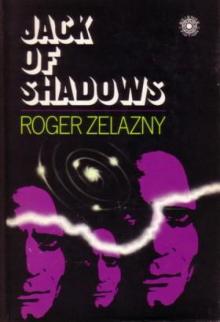 Jack Of Shadows
Jack Of Shadows Lord of Light
Lord of Light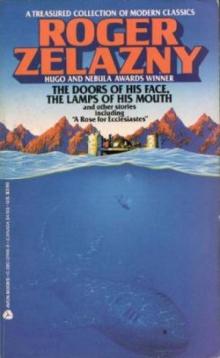 The Doors of His Face, The Lamps of His Mouth and Other Stories
The Doors of His Face, The Lamps of His Mouth and Other Stories Guns Of Avalon tcoa-2
Guns Of Avalon tcoa-2 Coils
Coils The Last Defender Of Camelot
The Last Defender Of Camelot Creatures of Light and Darkness
Creatures of Light and Darkness This Immortal
This Immortal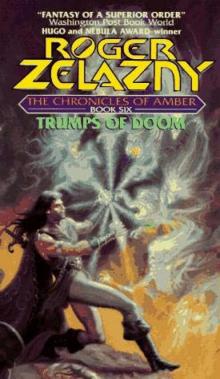 Trumps of doom tcoa-6
Trumps of doom tcoa-6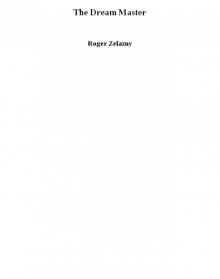 The Dream Master
The Dream Master The Complete Dilvish, The Damned
The Complete Dilvish, The Damned Nine Princes in Amber
Nine Princes in Amber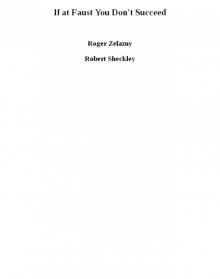 If at Faust You Don't Succeed
If at Faust You Don't Succeed Here there be dragons
Here there be dragons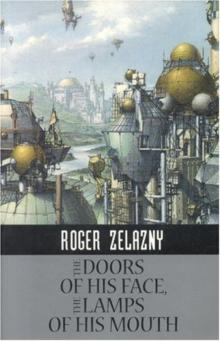 The Doors Of His Face, The Lamps Of His Mouth
The Doors Of His Face, The Lamps Of His Mouth The Great Book of Amber - Chronicles 1-10
The Great Book of Amber - Chronicles 1-10 Madwand (Illustrated)
Madwand (Illustrated) The Chronicles of Amber
The Chronicles of Amber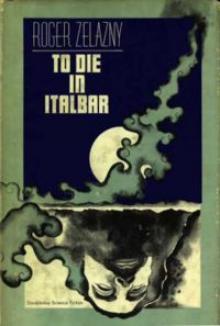 To Die In Italbar
To Die In Italbar The Changing Land
The Changing Land The Furies
The Furies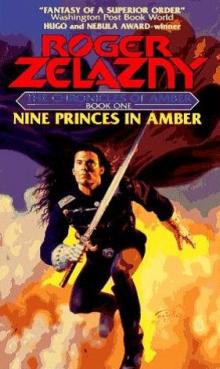 Nine Princes In Amber tcoa-1
Nine Princes In Amber tcoa-1 Last Of The Wild Ones
Last Of The Wild Ones Sign of the Unicorn tcoa-3
Sign of the Unicorn tcoa-3 My Name is Legion
My Name is Legion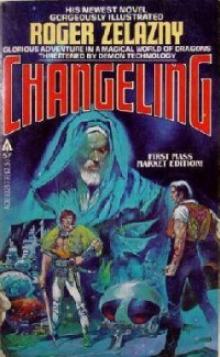 Wizard World 1: Changeling
Wizard World 1: Changeling Changeling
Changeling The Shroudling and the Guisel (amber stories)
The Shroudling and the Guisel (amber stories) The Mask of Loki
The Mask of Loki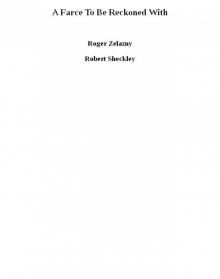 A Farce To Be Reckoned With
A Farce To Be Reckoned With Roadmarks
Roadmarks When Pussywillows Last in the Catyard Bloomed (rtf)
When Pussywillows Last in the Catyard Bloomed (rtf)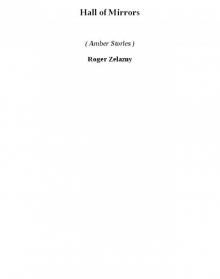 Hall of Mirrors (amber stories)
Hall of Mirrors (amber stories) Permafrost
Permafrost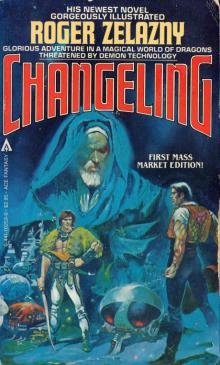 Changeling (Illustrated)
Changeling (Illustrated)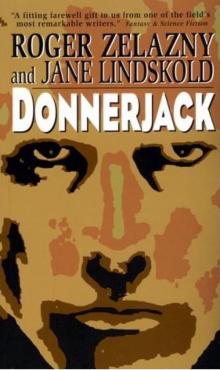 Donnerjack
Donnerjack Shadows & Reflections: A Roger Zelazny Tribute Anthology
Shadows & Reflections: A Roger Zelazny Tribute Anthology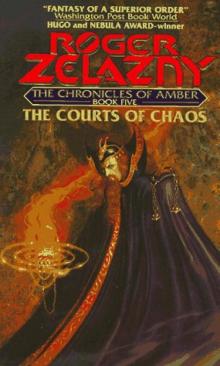 The Courts Of Chaos tcoa-5
The Courts Of Chaos tcoa-5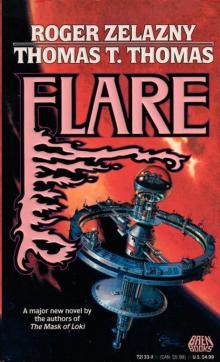 Flare
Flare Doorsways in the Sand
Doorsways in the Sand The Great Book of Amber
The Great Book of Amber Home Is the Hangman
Home Is the Hangman For a Breath I Tarry
For a Breath I Tarry Isle Of The Dead
Isle Of The Dead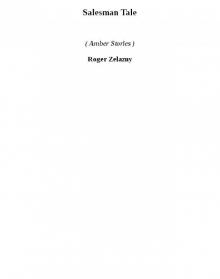 Salesman Tale (amber stories)
Salesman Tale (amber stories) Dismal Light
Dismal Light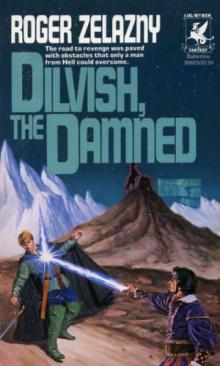 Dilvish, The Damned
Dilvish, The Damned The Black Throne
The Black Throne Wizard World 2: Madwand
Wizard World 2: Madwand The Salesman's Tale
The Salesman's Tale